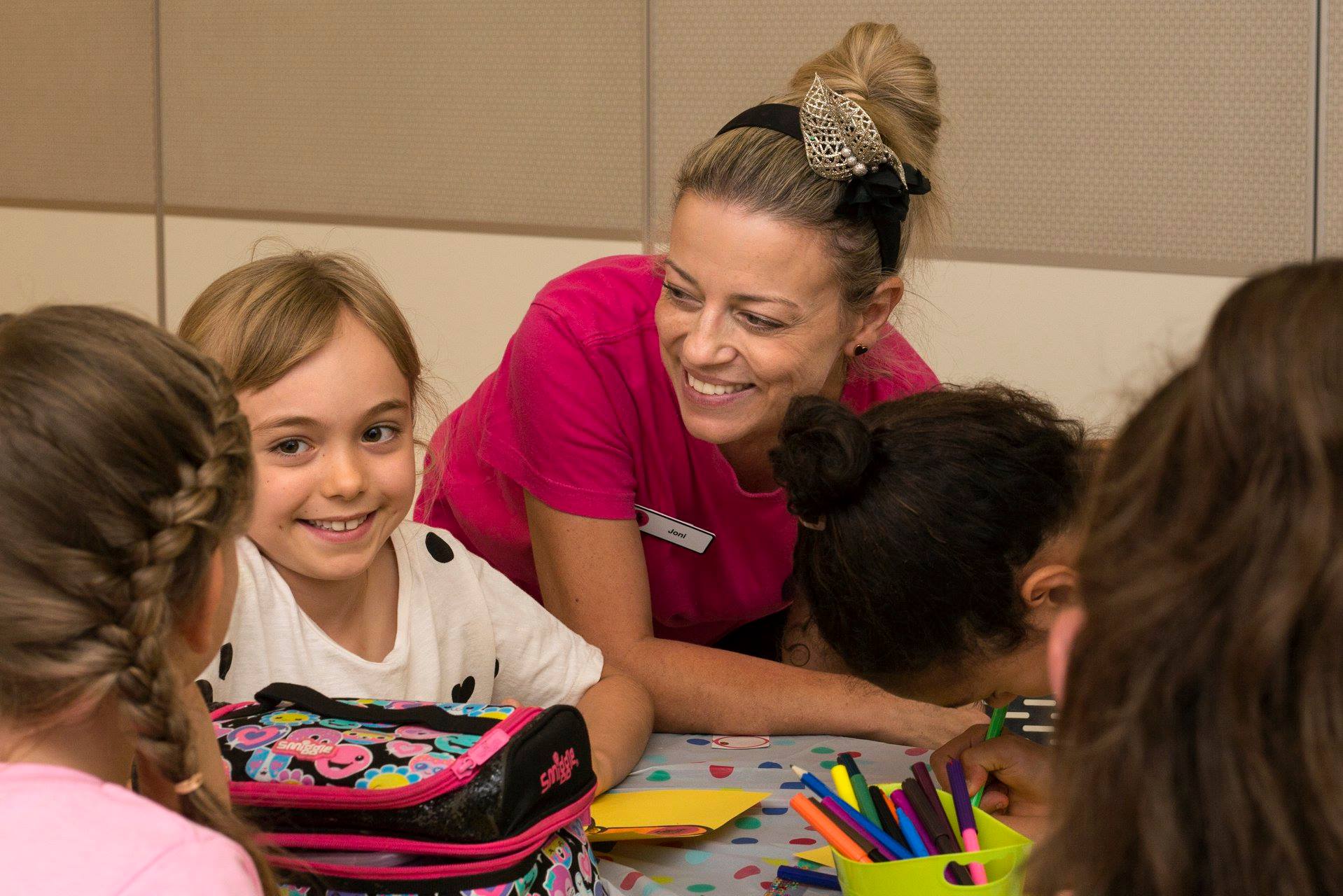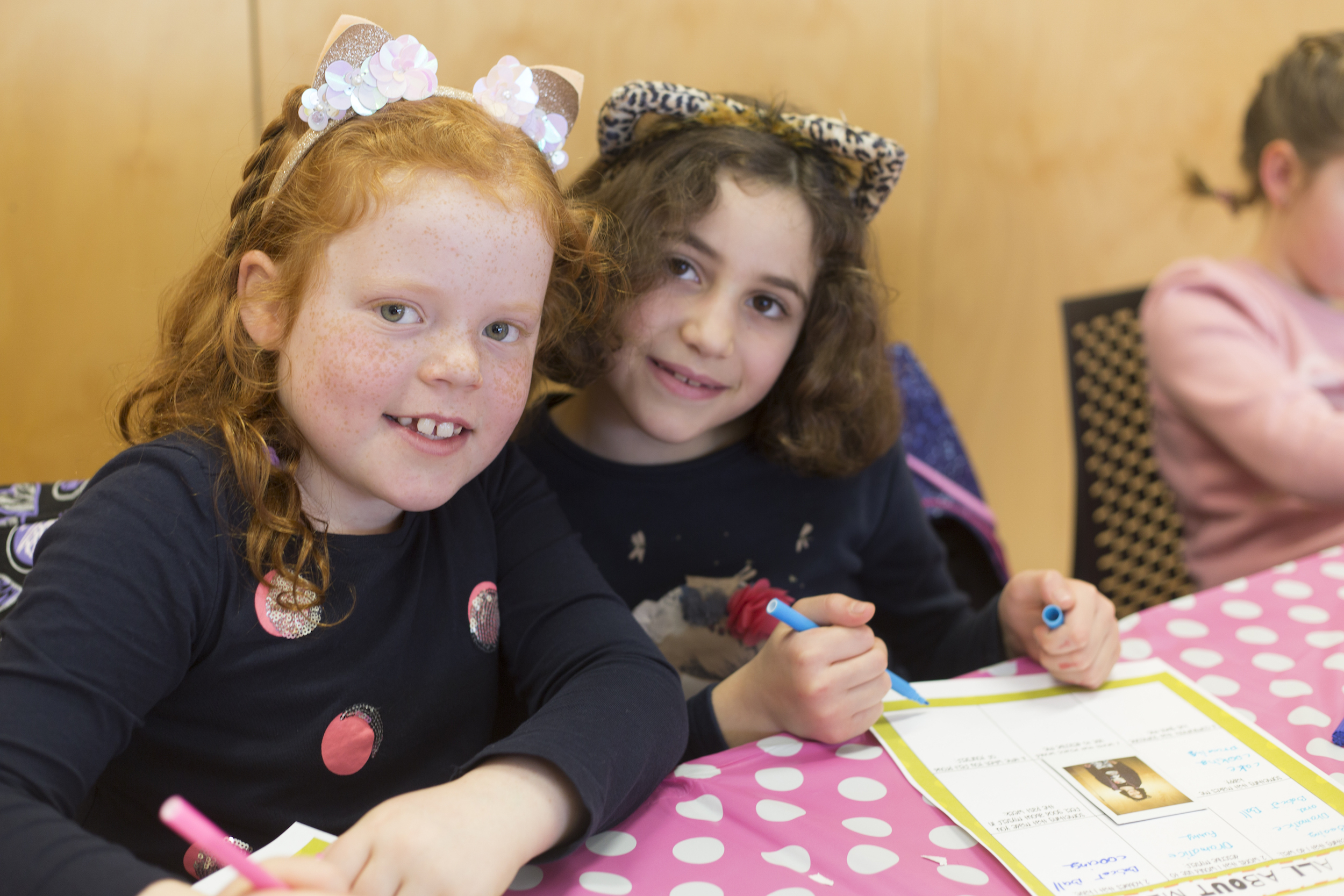By Jazz Teurlings
Girls come out of the womb ready to conquer the world — they’re boisterous, daring and inquisitive. But around the age of seven, a confusing new mix of social pressures and greater expectations in the classroom can make them lose their ‘spark’. As a parent, you can feel just as helpless navigating these turbulent years with them.
That’s where Joni Combe, from Girl Power steps in. As a teacher and mum of three herself, Joni is passionate about empowering the next generation of young women through her interactive workshops. I sat down with Joni to discuss her top seven tips for raising resilient young girls, before they embark on their teenage years.
1. Be a positive role model
Kids are a bit like parrots — they’re cute, noisy and have a knack for mimicking everything you say. We’ve all been caught out on this last point before. So, positive behaviour and social interaction starts with you. It can be from the way that you address a waitress in a café; to the way that you talk about yourself. As women, we tend to focus too much on our appearance and diets in front of our girls. Instead of saying that you want to lose a few kilos, change the dialogue to something more positive, like “I’m going to exercise more and eat better, because it’s good for my body.” It goes without saying, that if you model a positive body image, then your girls are likely to adopt that same view as well.
2. Don’t accommodate every need
It’s 2:30pm and you’re in a rush to make it from the shops to school pick-up in time. Your youngest collapses in the middle of the supermarket aisle in tears because she just needs this new toy. Sound familiar? Sometimes as parents it’s easier to give them what they want. But if we give in consistently, then they’ll never know what it’s like to work or wait for something. Joni encourages parents to start making their children do things for themselves as early as possible. Her kids started making their own lunches for school from the time they were eight years old. But it can also be as simple as making them get dressed by themselves or tidying their own room. Not only will it help them to grow independently, but it will also make your life easier as well.
3. Allow room for age appropriate risks
No parent wants to see their child get hurt, physically or emotionally. We can become so protective of our girls, that we prevent the very opportunities which can build-up their resilience. Joni says parents need to allow age appropriate risks for their girls. Whether that be allowing them to swing across the monkey bars at age five, to catching a bus by themselves at age 12. Ultimately, you know your own child and what they are capable of.
4. It’s okay to make mistakes
Teach your girls that it’s okay to make mistakes, otherwise it can lead to unhealthy levels of perfectionism and anxiety. Sometimes we get so hung up on the result, that we forget to praise the effort. After all, it’s the hard work and practice that allows our girls to grow and learn. If for example, your daughter didn’t get the mark she wanted on an assignment, encourage her to talk to her teacher about what she could do differently. Just like riding a bike, you had to fall off a couple of times before you learnt.
5. Allow your daughter to ‘find her spark’
While your girls are still young, it’s important to expose them to as many different activities as possible, without of course pushing your own agenda. This isn’t to say that you need to enrol them into two after school activities each day. In fact, it’s just as important to allow your child the opportunity to be bored. Take note of what your daughter does during her free play, as it can often be telling of where her ‘spark’ or passion lies.
6. Take the time to listen
As a parent, it’s crucial to take the time to be present and actively listen to your child. Joni says if you don’t take the time to listen to the little things, then they will never come to you with the big things. If you’re struggling to get your daughter to open up, Joni suggests making the conversation feel more casual, by talking while doing other activities, like driving or cooking.
Try to also avoid generic questions about their day, especially if you are getting nothing more than an “I forgot” or “I dunno” response out of them. You could instead ask, “what was the best thing that happened today?” or “what was something that you found hard?” Your older ones may come up with some cheeky responses, but it will at least get a broader conversation going.
 7. Put your own oxygen mask on first
7. Put your own oxygen mask on first
Just like you’re instructed to on flights — you have to secure your own oxygen mask first, before helping others. The reason is simple and practical, and it extends far beyond family holidays. If you are burnt out, then that’s going to have a ripple effect on your family. As parents, we are often too consumed with our children’s wellbeing, that we forget to take care of our own. Heck that’s why you’re reading this! So our final point is a reminder to you. Take the time to exercise, eat, sleep and socialise — and don’t feel guilty about it, because ultimately, it can only benefit your girls anyway.
Girl Power provides interactive well-being workshops for young girls aged 7 – 12 years. To learn more about their next workshop visit girlpowerworkshops.com.au
Jasmin xx











